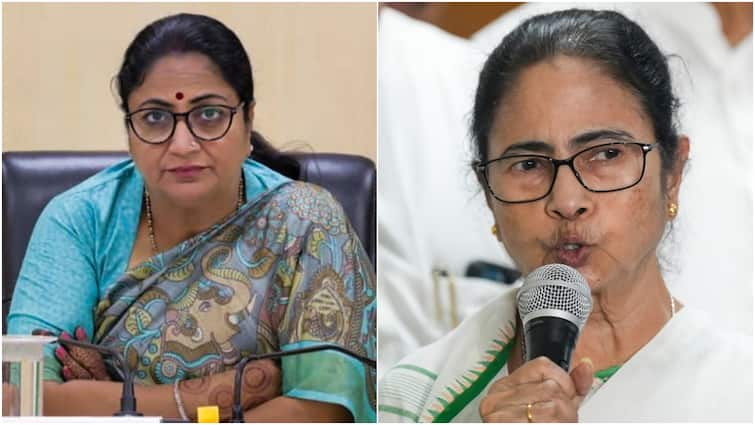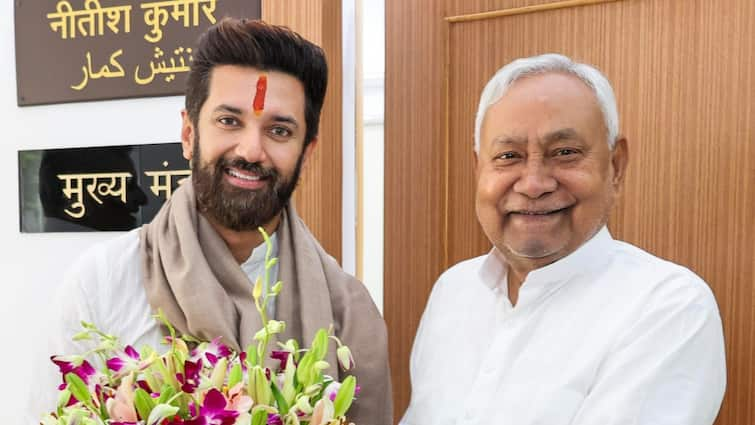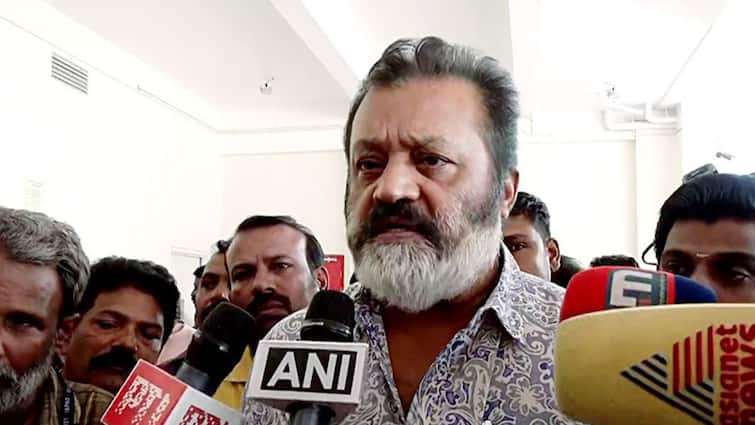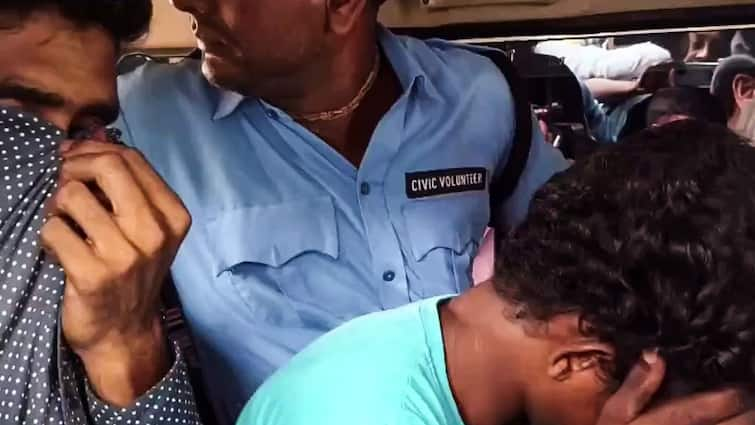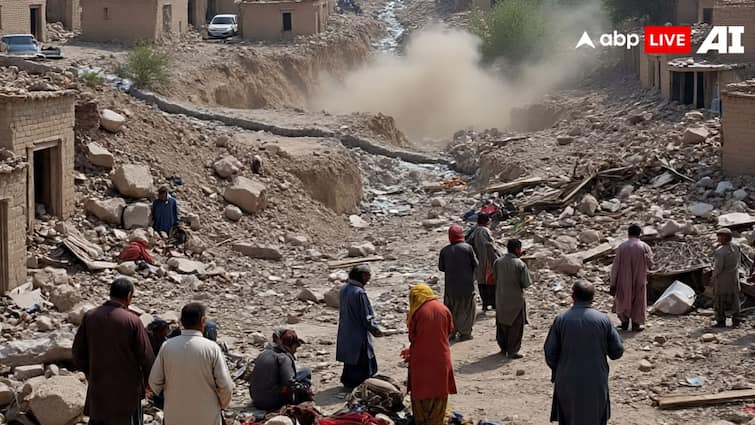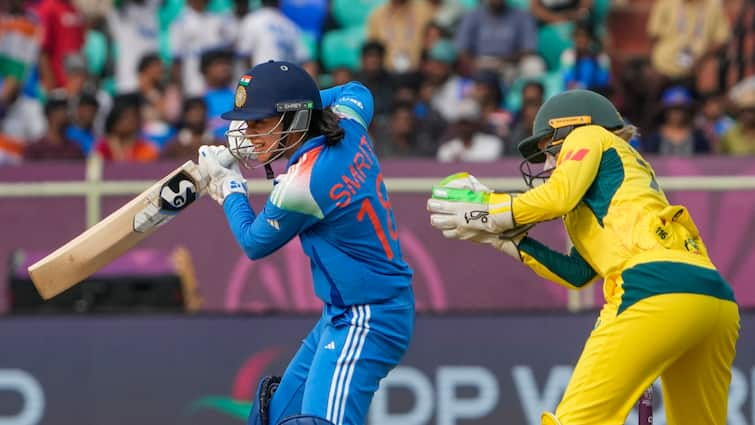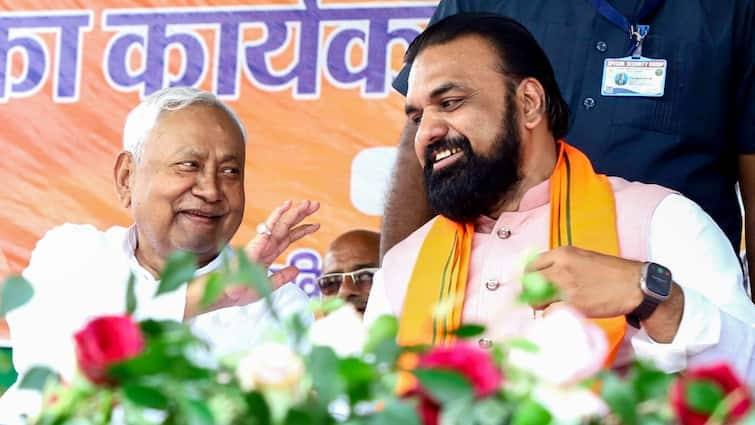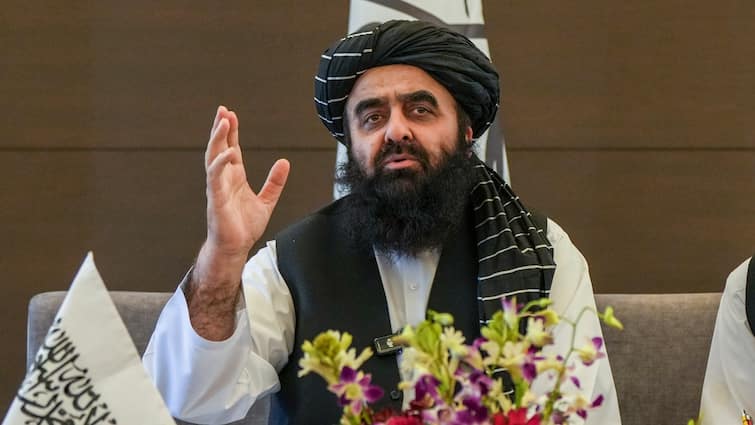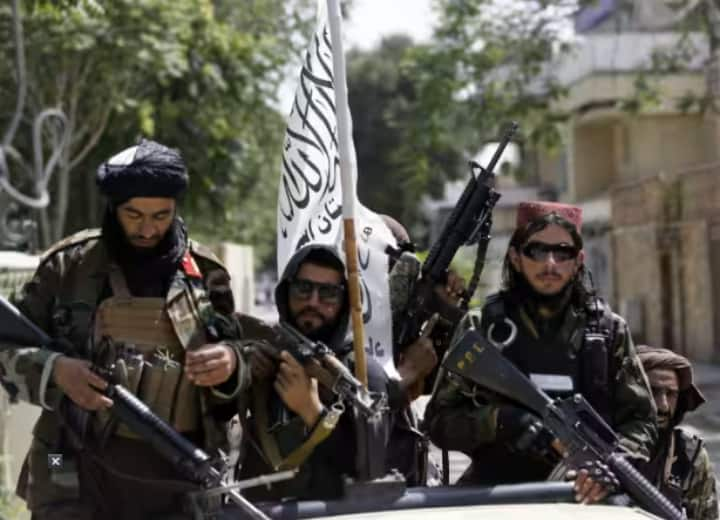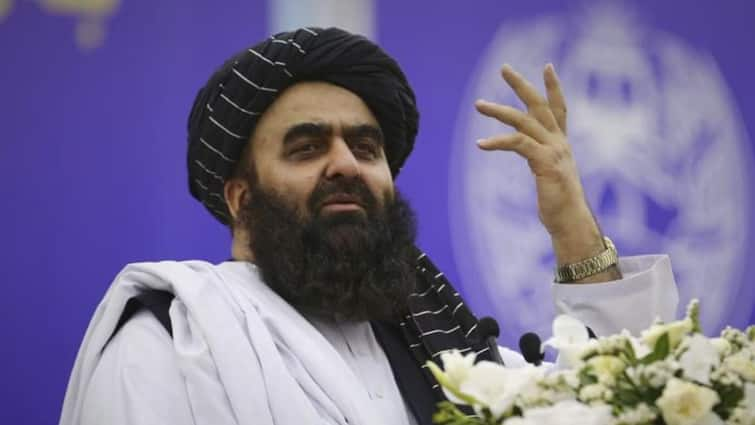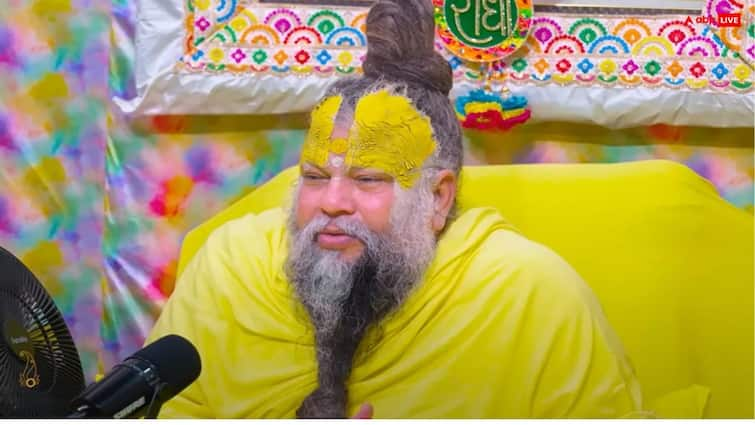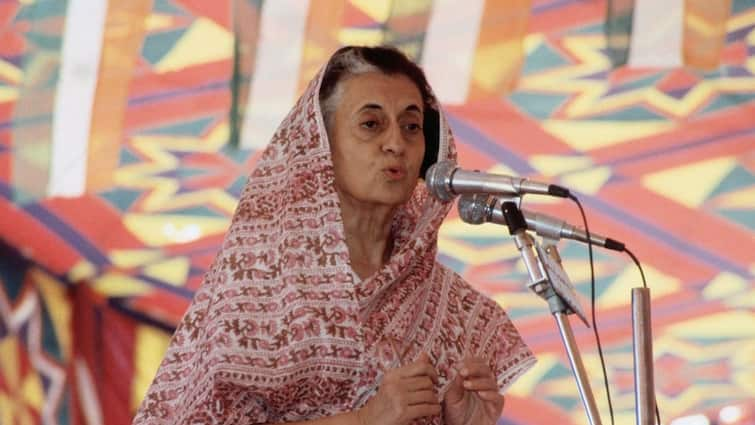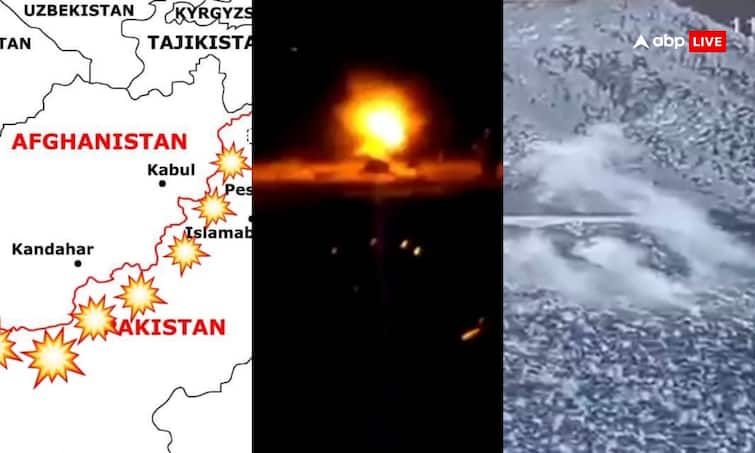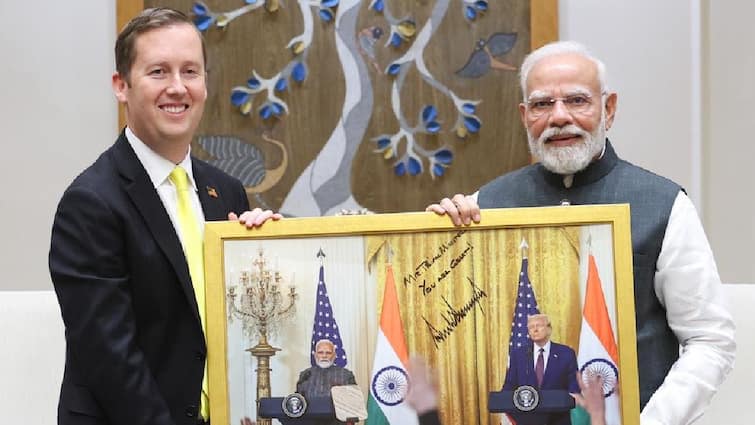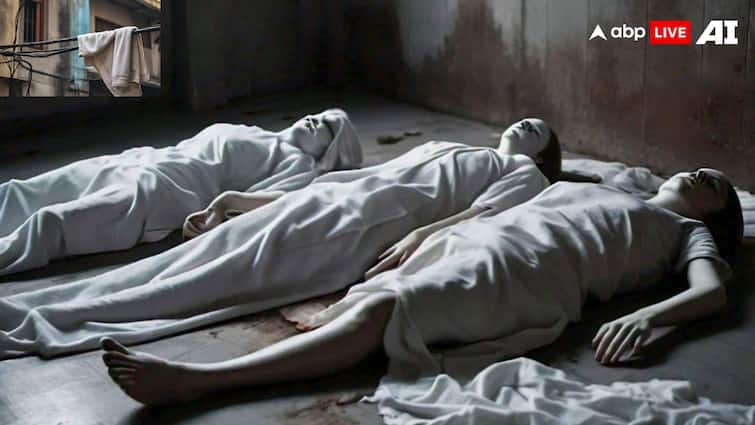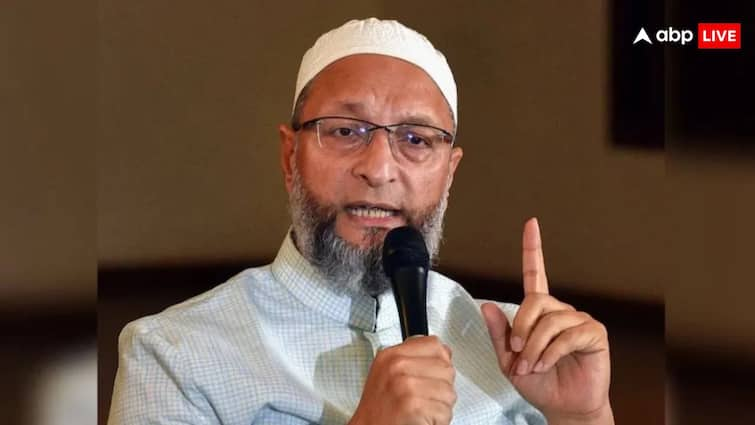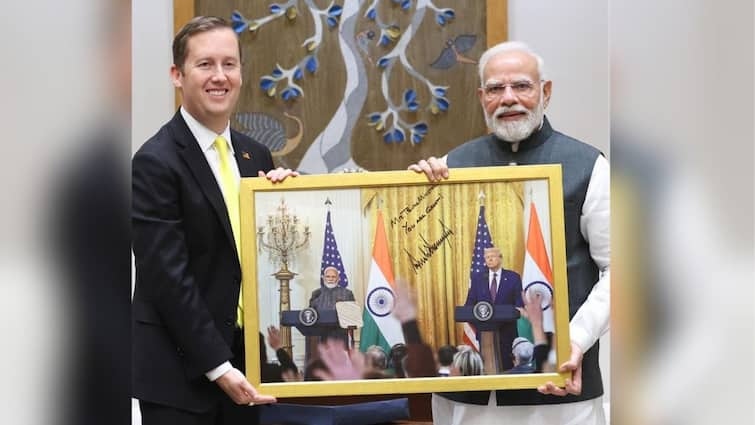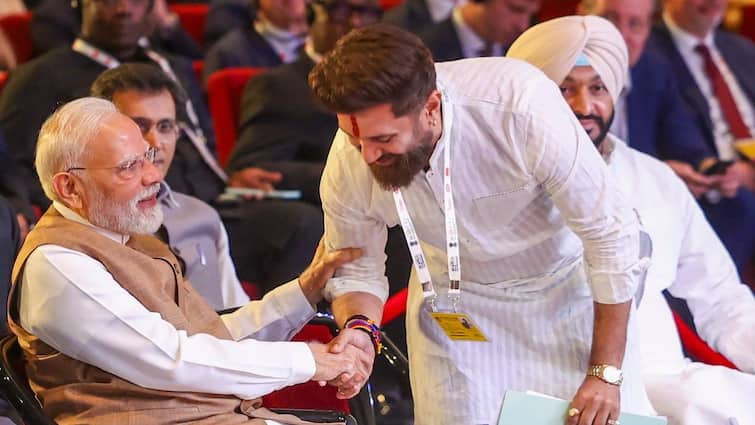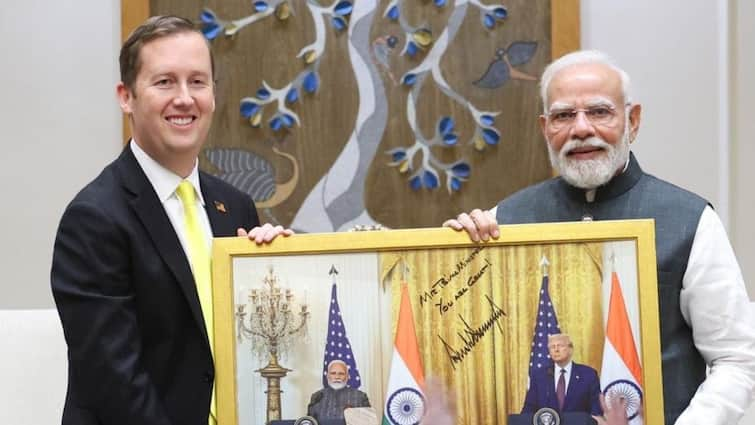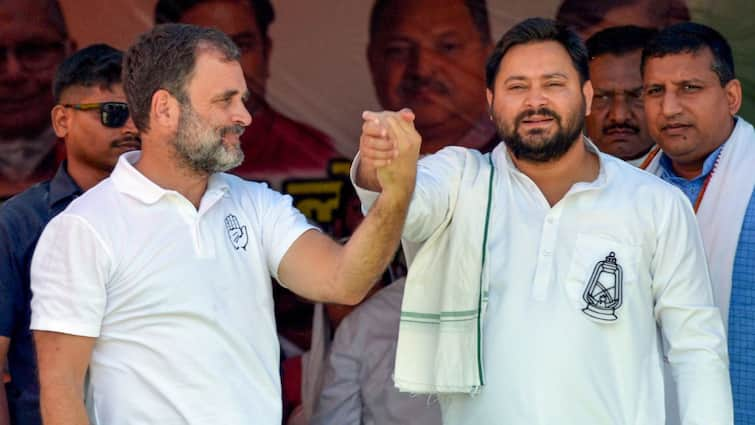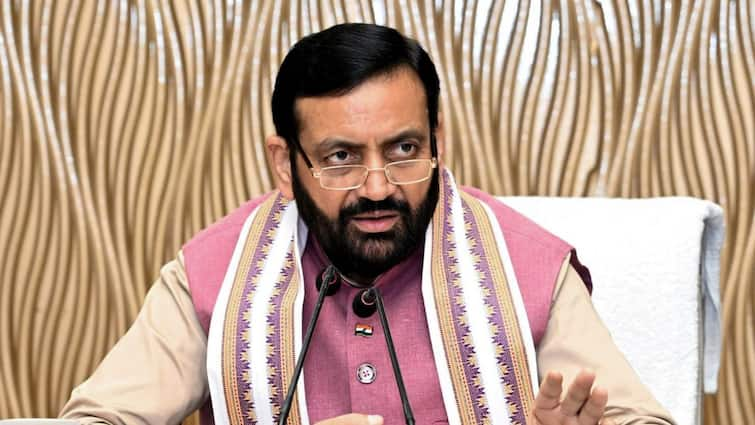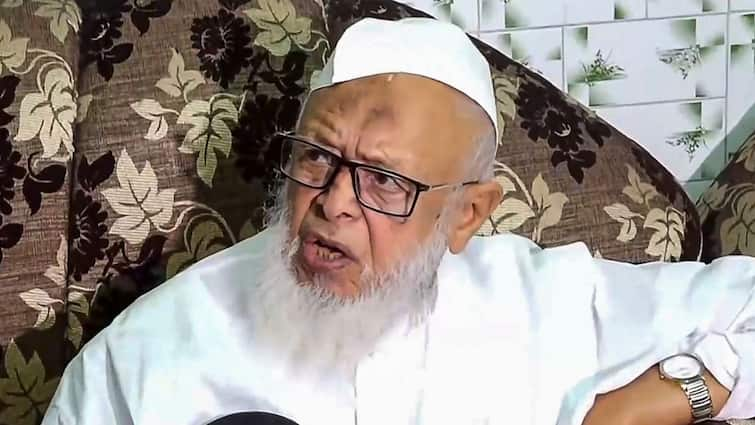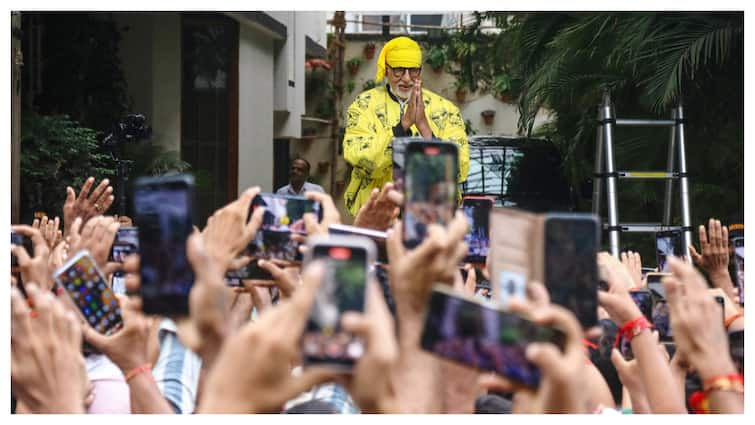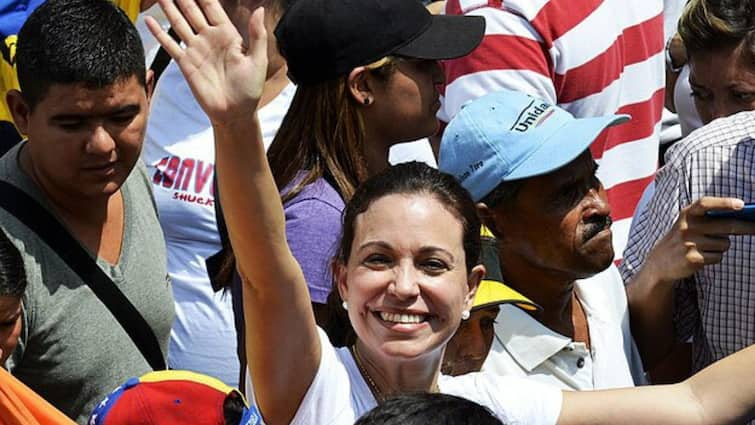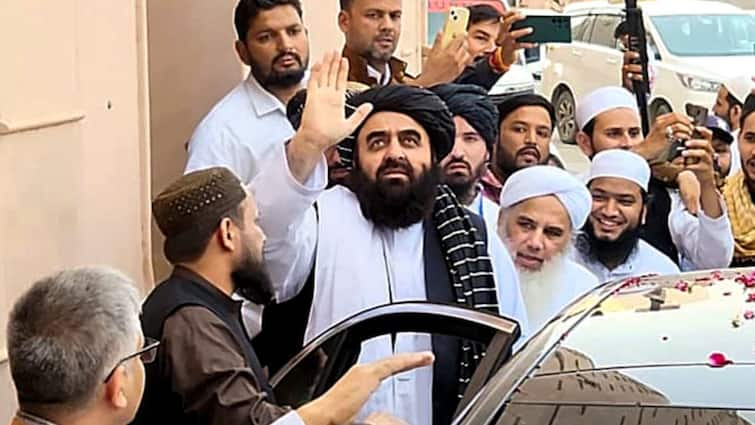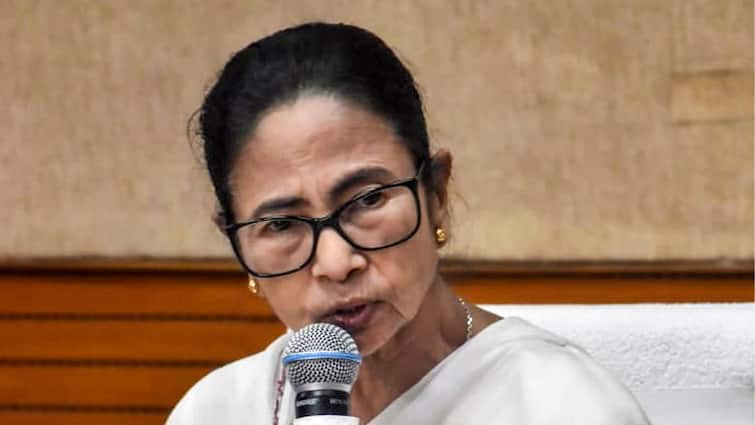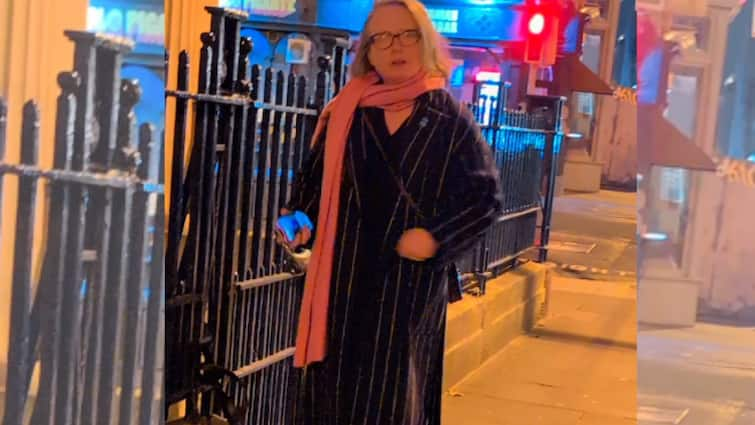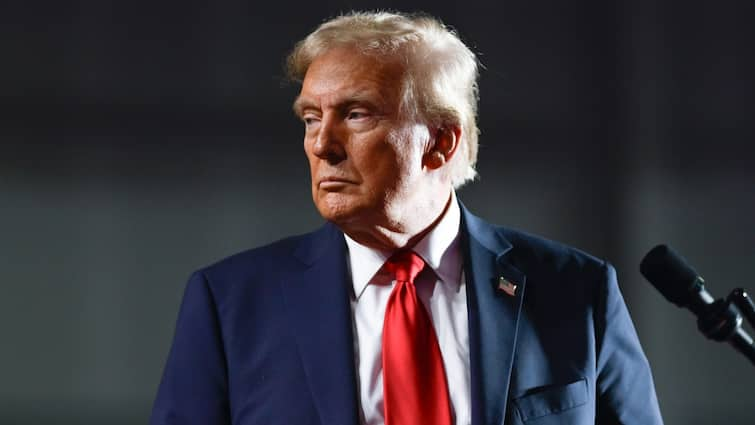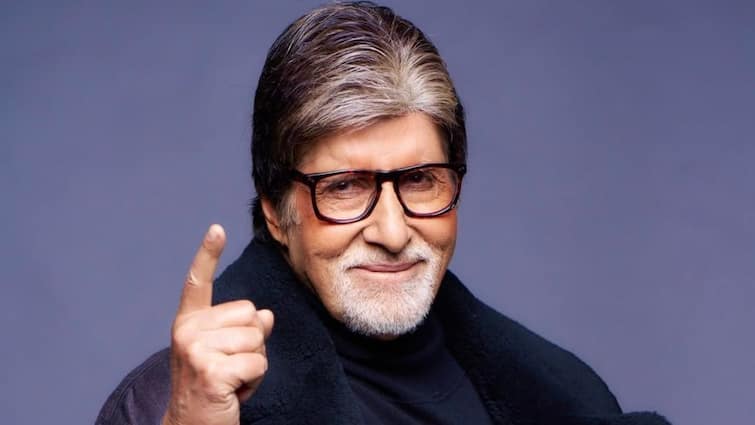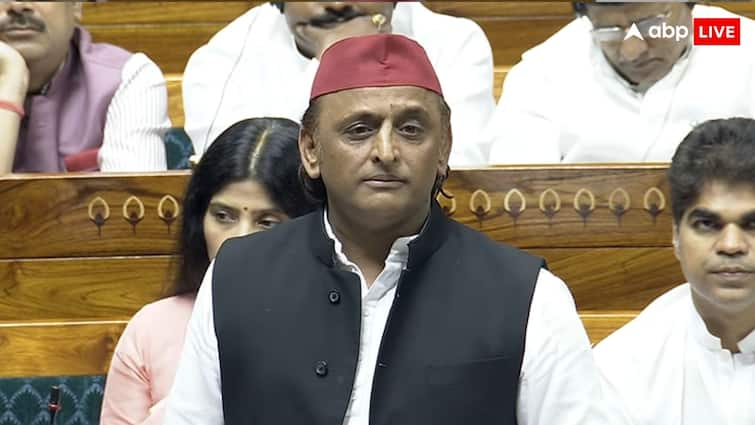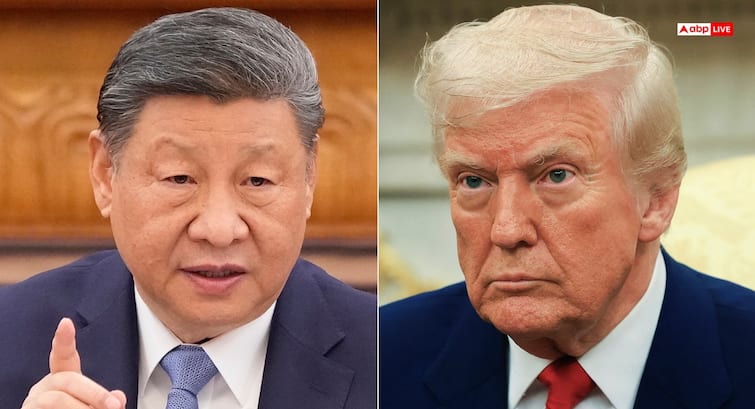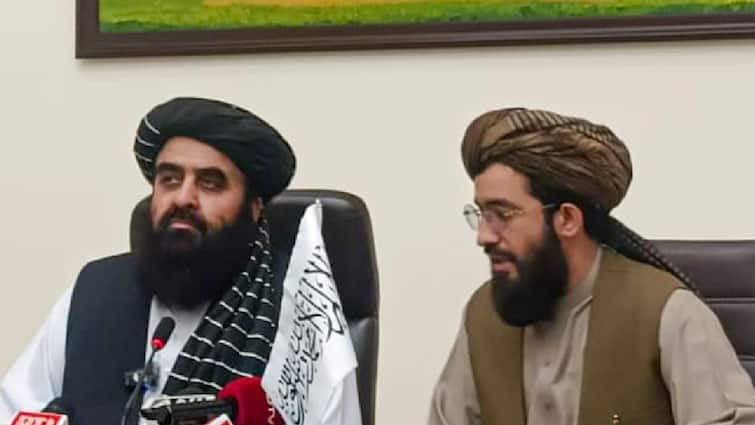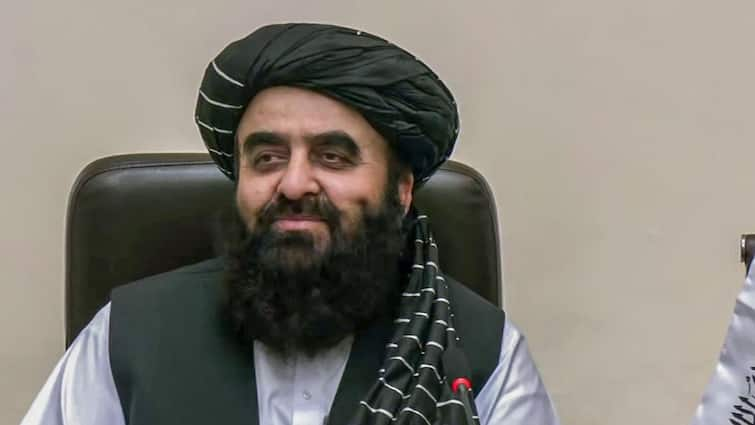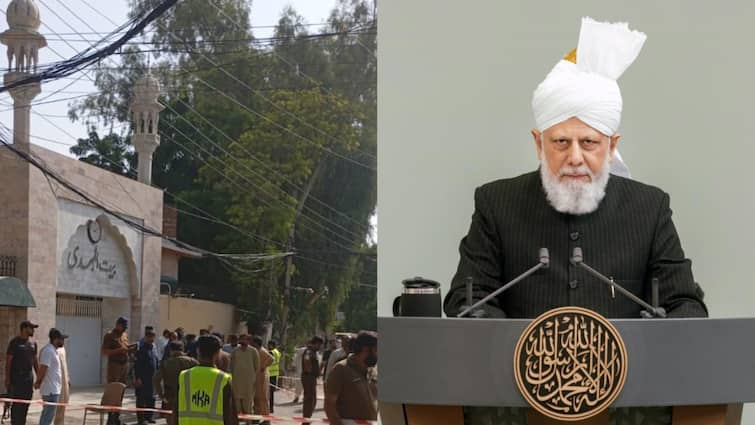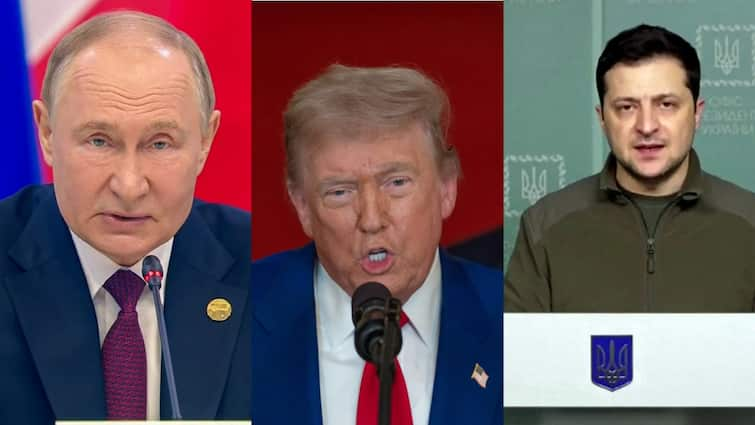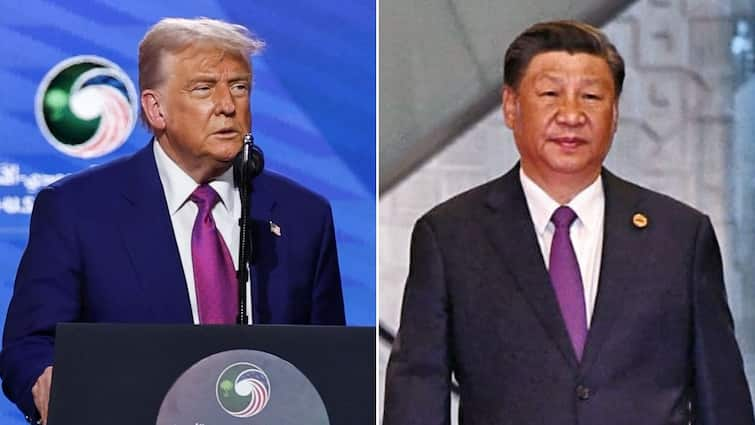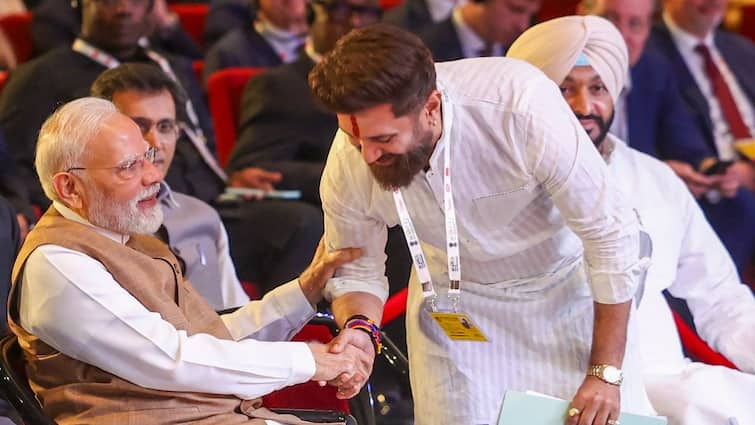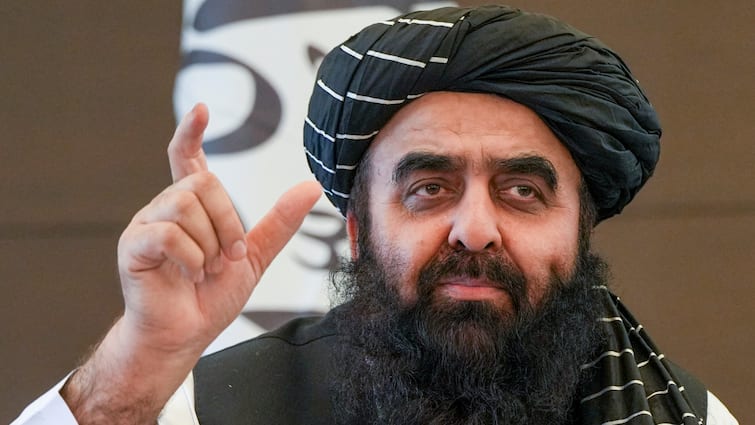
The Afghan tricolour was fluttering in the sunlight, making it glow, when the cavalcade of Afghanistan’s Taliban Foreign Minister Amir Khan Muttaqi arrived, breaking an eerie silence inside the premises of the Embassy of Afghanistan in New Delhi.
Muttaqi came to address a large gathering of Indian press after facing backlash for excluding women journalists from a previous press conference. Due to this resistance, Muttaqi had to cancel his trip to the Taj Mahal in Agra and return to Delhi after attending a significant gathering at the Deoband seminary, Darul Uloom.
Muttaqi Sunday painted a rosy image of Afghanistan, which is currently under their control since August 15, 2021, and said there is peace and security in that war-torn country and there is no gender discrimination between women and men.
Responding to a query posed by ABP Live, Muttaqi said Indian diplomats, who will resume the normal running of the Embassy of India in Kabul, will be provided with the utmost safety and security. He emphasised that a tragic incident like the 2008 bomb blast, which resulted in many fatalities, will not happen again.
“In today’s Kabul, today’s Afghanistan, everyone is living in peace, and everyone is under a safety net that we have provided. We have ensured safety and security for all. Similarly, we will ensure that Indian diplomats who will go there now will also be provided utmost safety and security. It will be the same in the future too,” said Muttaqi said in response to a question by ABP Live on the 2008 incident when the Indian Embassy in Kabul came under attack.
On July 7, 2008, the Indian Embassy was targeted in a suicide bombing. The attack was a significant event in the context of India’s presence and involvement in Afghanistan. The bombing resulted in the deaths of about 58 people, including two senior Indian officials and Afghan civilians. Many others were injured.
The attack was attributed to militant groups believed to be linked to Pakistan-based organisations. The Indian government accused the Pakistani intelligence agency, ISI, of being involved in the planning and execution of the attack, in collusion with the Taliban and the Haqqanis.
The Indian Embassy was attacked in 2009 too which also resulted in casualties.
“Today there is ‘aman’ (peace) in Afghanistan … We fought for the last 20 years not only to remove the United States or the NATO troops from Afghanistan but also to bring in peace, stability and security in that country,” Muttaqi said as he addressed a press conference inside the Embassy of Afghanistan in New Delhi.
No Safe Haven For TTP
On the issue of escalating violence and tensions between Pakistan and Afghanistan near the Durand Line, Muttaqi said this is Pakistan’s “internal matter”, and that fight is going only near the tribal zones of the border where the presence of Tehreek-e-Taliban (TTP) is high.
“The Durand Line is over 2400 km. But a small portion of the line falls in the tribal areas, which even the British could not manage to fight in. That area is where the fighting is going on between the Pakistani military and the TTP. This is happening inside their territory near the Durand Line, not inside the Afghan territory,” he said.
Muttaqi added, “It is a shame that the Pakistani military, despite having all the modern weaponry, cannot manage their own security and are putting the blame on us. If we can control such a big country like Afghanistan and that too after fighting NATO for over 20 years, Pakistan cannot even manage to maintain security of their border areas.”
The Taliban foreign minister, however, said, “The people of Pakistan want peaceful relations with Afghanistan. The majority of them do not want to fight. But few elements are there in higher echelons of the government who do not want peace.”
Muttaqi arrived in New Delhi on 9 October when he was welcomed with all the existing diplomatic protocols. On October 10, he held a bilateral meeting with External Affairs Minister S. Jaishankar where it was decided that both sides will normalise ties by reopening the embassies in each other’s countries.
Since 2021, when the republic government collapsed in Afghanistan as the Taliban assumed charge, the Afghan Embassy in New Delhi was being run by the local Indian staff members. The previous diplomats, including the former Ambassador of Kabul to India, Farid Mamundzay, were asked to leave the country after they were charged with corruption and embezzlement.
The Embassy is currently under the charge of Sayed Mohammad Ibrahimkhil, who is currently the Charge d’Affaires (CDA). He was earlier the Consul General of Afghan consulate in Hyderabad. In November 2024, the Taliban appointed Ikramuddin Kamil as the Acting Consul General in Mumbai.
India and Afghanistan are expected to also enhance trade and commerce ties between both countries. Muttaqi, Sunday, invited Indian investors to invest into the mining sector of Afghanistan. He also said more high-level visits will now take place between both the countries.
Muttaqi will be in New Delhi till Wednesday, during which he will seek to meet the National Security Advisor Ajit Doval and also call on Prime Minister Narendra Modi. However, none of the two crucial meetings have yet been finalised.
Muttaqi, who continues to be a sanctioned person by the UN, has been able to travel to New Delhi because the UN Security Council committee granted him a temporary approval. Muttaqi is sanctioned under the UNSC Resolution 1988 (2011). The UNSC committee is currently being chaired by Pakistan, which is a non-permanent member.
Nayanima Basu is a senior independent journalist.
Doonited Affiliated: Syndicate News Hunt
This report has been published as part of an auto-generated syndicated wire feed. Except for the headline, the content has not been modified or edited by Doonited




